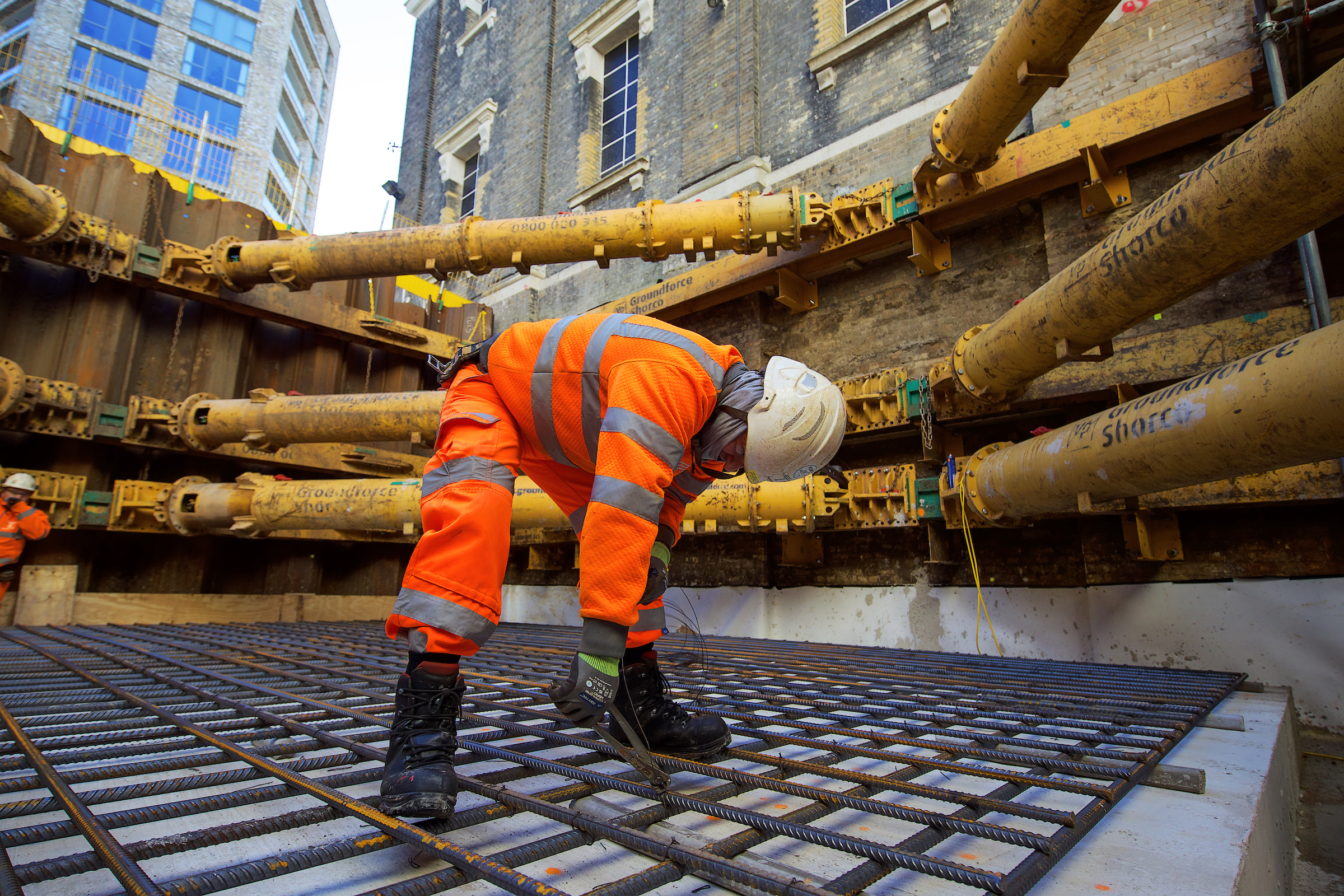A complex shoring solution supplied by Groundforce Shorco for another Tideway excavation.
Groundforce Shorco has provided specialist equipment to support a second Air Treatment Unit (ATU) excavation on the Thames Tideway Tunnel, London’s Super Sewer project.
The project requires a number of ATUs to be installed along the route of the 25km tunnel, to treat exhausted air from the super-sewer.
Last year, Groundforce provided Costain, Vinci Construction Grands Projects and Bachy Soletanche Joint Venture on the Eastern section with sheet piles and a range of medium and heavy-duty bracing frames for the ATU excavation in the Deptford Church Street site.
Now, Groundforce Shorco is supporting another Tideway ATU excavation, this time at their Greenwich Pumping Station site.
This ATU excavation is especially challenging as it is in a very confined location, bounded on one side by Greenwich Pumping Station, a listed building, and on an adjacent side by an acoustic enclosure used by the JV to receive precast concrete tunnel sections for the Greenwich connection tunnel.
“Although the ATU is only about 8m x 8m in plan, a sheet piled structure of 13m x 15m was designed to enable adjacent ventilation pipework and ducting to be installed simultaneously,” says Civils Senior Engineer Andrew Bellamy.
“Stringent limits on the deflection of the sheet were set due to the proximity of the excavation to the acoustic enclosure foundations, which includes a gantry crane, working continuously to supply the secondary lining works. The excavation was sheet piled on three sides, the fourth being the Grade 2 listed Thames Water pumping station.”
Access to the acoustic enclosure needed to be maintained throughout the works, adding further restrictions to the already confined working area. The solution was to create a chamfer to one corner of the 14m x 13m x 5m deep excavation. This chamfer allowed articulated lorries to continue delivering materials.
“Due to the orientation of the site access gate it was physically impossible to move the vehicle route away from the ATU and without the chamfered corner vehicle access would have been completely impossible for HGVs,” says Mr Bellamy.
“There are two excavators on site, including one 45-tonner, and three lorry deliveries per shift bringing tunnel segments for the tunnel boring machine which meant that our design had to accommodate an increased surcharge of 15kN/m2,” explains Groundforce Shorco Area Manager Arpad Nagy.
The excavation is lined with 6m-long GU13N steel sheet piles and braced with three levels of Groundforce’s hydraulic Mega Brace frames. Four MP150 modular hydraulic props were installed as knee-braces (ie spanning the corners of the excavation) at all three levels within the excavation – a total of 12 props.
The MP150s are attached to brackets welded to the waling beams.
“These act as shear-stoppers to prevent the props sliding along the beams,” explains Arpad.
One side of the excavation runs along the top of the pumping station’s 10m-deep foundations.

“The JV had to drill into the foundation of the Grade 2 listed Thames Water pumping station in order to facilitate the installation of gallows brackets required to support the temporary frames,” explains Arpad.
The support structure is designed to limit deflections in the sheet piles to within 10mm.
Designing the support system was complicated by the need to chamfer the corner of the excavation, says Arpad: “Once you lose that corner you need to recalculate the loadings and reposition the knee braces.”
With the bracing installed, the 800mm-thick base slab was cast. When this had reached full strength, the two bottom levels of bracing could be removed to allow formwork to be assembled for the concrete wall lining.
The top level of bracing is due to be removed when the lining walls have reached 1m below ground level.
Despite the complexity of the job, design and installation of the support system has gone very smoothly.
“Groundforce have served us well on the ATU package, engaging at the design stage, attending site to deliver toolbox talks on the EMV, and generally with how the works were progressing,” says Mr Bellamy.